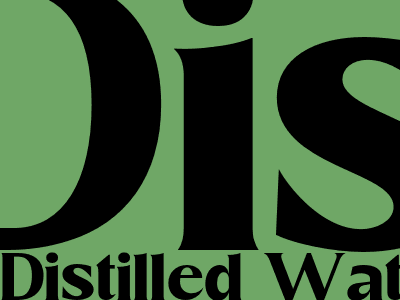
Distilled Water
Distilled Water: The Ultimate Guide to Health Benefits, Uses, and Dangers
What is Distilled Water?
Distilled water is water that has been purified by the process of distillation, which removes impurities and contaminants. It is created by boiling water until it vaporizes and the steam is collected and condensed back into liquid form. This process eliminates microorganisms, minerals, salts, and other substances, resulting in water that is nearly pure H2O.
Types of Distilled Water
*
Single-distilled water: Undergoes one distillation process, removing most impurities but still containing some minerals. *
Double-distilled water: Undergoes two distillation processes, resulting in purer water with fewer remaining contaminants. *
Ultrapure water: Undergoes multiple distillation processes and additional purification steps to achieve the highest purity level possible.
Health Benefits of Distilled Water
*
May improve hydration: Distilled water is easily absorbed by the body, potentially promoting hydration. *
Supports kidney function: By removing minerals and salts, distilled water may reduce the burden on kidneys. *
May help prevent kidney stones: The lack of minerals in distilled water may lower the risk of kidney stone formation. *
Suitable for sensitive individuals: Distilled water is free from chlorine and fluoride, making it suitable for people with allergies or sensitivities to these chemicals.
Uses of Distilled Water
*
Medical applications: Used in medical equipment, such as autoclaves and nebulizers, to prevent mineral buildup. *
Laboratory experiments: Serves as a control or reference in scientific experiments to ensure purity and avoid interference. *
Car batteries: Used to replenish the electrolyte solution, ensuring optimal battery performance. *
Steam irons: Prevents mineral buildup in steam irons, prolonging their lifespan. *
Plants: Can be used for watering plants that are sensitive to minerals, such as orchids or carnivorous plants.
Dangers of Distilled Water
*
Can be corrosive: The absence of minerals in distilled water can make it slightly corrosive, especially when exposed to metal surfaces for extended periods. *
May leach minerals from the body: Excessive consumption of distilled water can potentially leach minerals from the body, as it lacks the electrolytes naturally present in other water sources. *
Not recommended for daily consumption: While distilled water may be safe for occasional use, it is not recommended as a primary source of drinking water due to the risk of mineral deficiency. *
May extract minerals from food: Consuming distilled water with meals may interfere with the absorption of minerals from food.
Conclusion
Distilled water has unique properties and uses, making it suitable for various applications. Its high purity makes it beneficial for medical and laboratory settings. However, it is important to note that distilled water has both benefits and potential drawbacks. For daily hydration, it is recommended to consume water that contains essential minerals to avoid potential health risks.
Comments